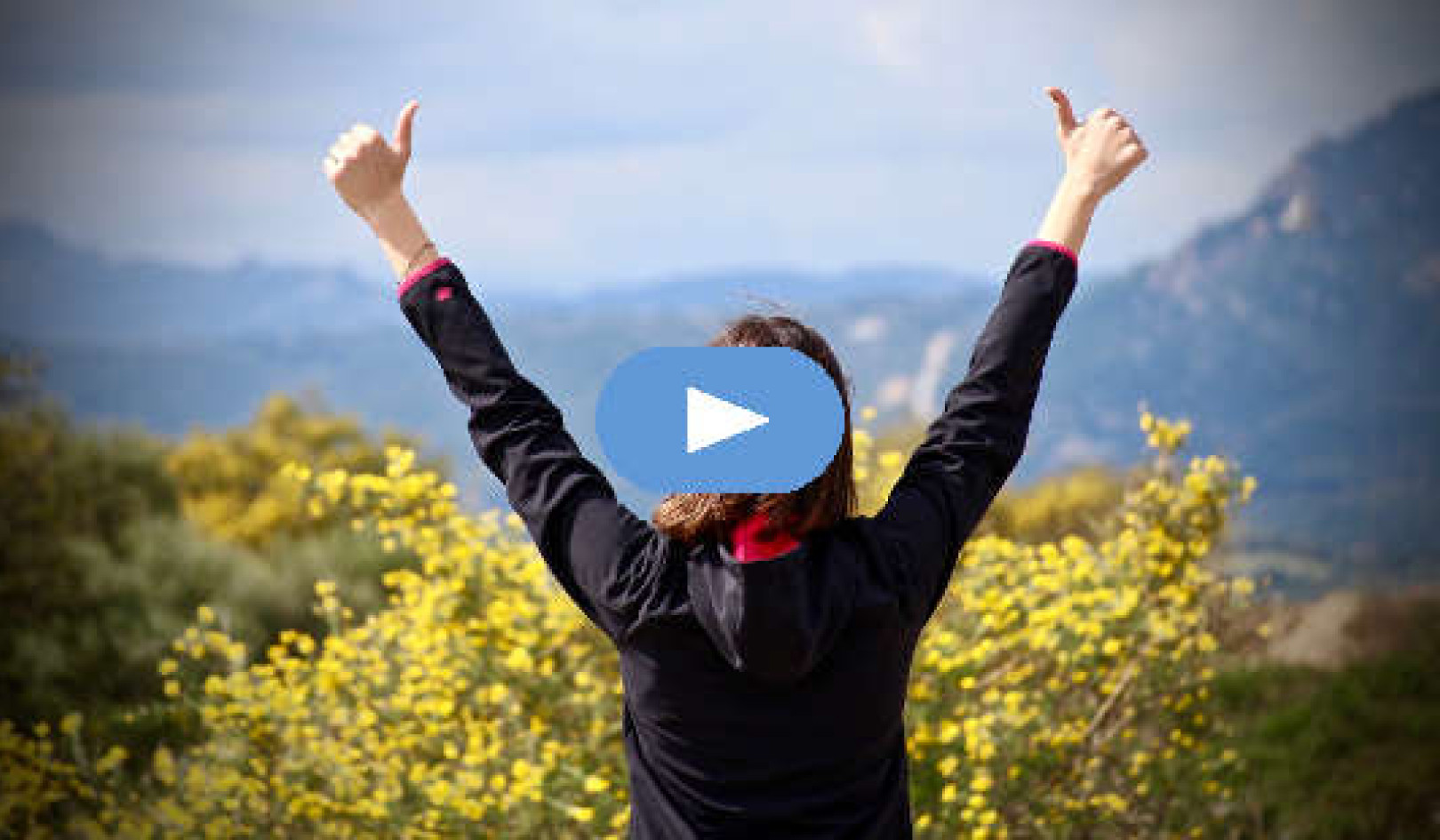
Three things in human life are important.
The first is to be kind.
The second is to be kind.
The third is to be kind. -- Henry James
There is no mystery in describing kindness. We all recognize it. We all know when we have expressed it. And we know when we have been showered with kindness. It feels good, whichever side of kindness we live on in the moment.
The decision to be kind is both ordinary and extraordinary, simultaneously. Kindness is ordinary in its simplicity, but quite extraordinary in its power to change people, and therefore relationships, communities, workplaces, and ultimately the world. Most often, kindness is a single tiny gesture—perhaps only a nod of the head or the mere hint of a smile. Occasionally it’s huge—an unexpected visit from a loved one who lives on the other side of the country, for instance. Or a bouquet of roses from a secret admirer. Perhaps a note from a loved one, a simple note that says, “I am thinking of you.”
Kindness is expressed in as many ways as the human mind can imagine. No one of them is preferable. They all count equally, particularly to one who has been bruised by life.
Kindness is an Attitude thus a Choice
Kindness is most easily explained as an attitude, and clearly, we are always in control of our attitude. It’s one of the few things that are never out of our control, as a matter of fact. Obviously, that means we can constantly be kind. But are we? The answer is no. We’d far prefer to blame others for the lousy attitude we have some days. “If only he hadn’t done this or said that, I’d be okay,” for instance. The excuses we manufacture for our negative state of mind are many, and pointless, and they infect the world around us. Let’s remember that we are one. We are interconnected; what touches you touches me in time too.
I am deeply moved by the words of Mother Teresa, who said: “Be kind to everyone and start with the person standing next to you.” The impact we can have on the world we share, if we choose to be kind in every circumstance or even in an occasional situation, simply can’t be overestimated. The shift in how life would feel to everyone is truly beyond description. This may seem far-fetched, but if we remember the butterfly effect from chaos theory, the impact I’m talking about will be obvious. Anything that happens in one place is felt every place in due time. Anything. Everything.
Kindness adds benefit to the lives of every one alive. Because this is true—indisputable, in fact—never refuse to be kind. Never. That doesn’t mean you have to let others take advantage of you. It only means that in your exchanges, your encounters with friends as well as strangers, you always respond pleasantly. Gently. It eases your life to make this decision. And it gives you a sense of healthy empowerment.
If we respond negatively to someone who has been unkind to us, we have given them power over us. Some say we have given them “rent-free space in our minds.” Snarling at someone may feel justified for a moment, even good, but the positive feeling doesn’t last. In fact, it leaves very quickly.
Are You a Kind Person?
I think of myself as a kind person now, at least most of the time; in my youth and even in the early years of my recovery, I was often on the lookout for a trade-off. What could I get in return for my kindness to you? In those days my kindness fell into the category of codependence. I tried to “buy favors” by being kind. If I went out of my way to please you, maybe you wouldn’t abandon me. Alas, it never worked. When you grow up in a dysfunctional family, it’s common to bargain in that way.
We walk a fine line, though, when it comes to kindness. If we honor Mother Teresa’s words, and I try to, we are kind to everyone, no exceptions. But might this not look like manipulation, on occasion? That we are being kind only for a hoped-for result? Perhaps. However, we always know if we have a “hidden” motive for our kindness. If we do, we have negated kindness completely. True kindness is always given freely with no expectation in return.
Making the decision to be kind in every situation seems like a tall order, perhaps, but it also can simplify one’s life. When I make that choice, and I sincerely try to make it every day, the hours pass so much more smoothly. My interactions are fruitful and I know that I am showing up in the world in a way that pleases God, that fulfills His will for me. There is a great line from A Course in Miracles that I’ll paraphrase here: “If the thought I am thinking or the action I am contemplating wouldn’t please God, exchange it for one that would.” This bit of simple guidance is mind-altering and day-changing.
Being Kind Is a Choice We Can Make & Remake Throughout The Day
To smile, to offer a tiny prayer of gratitude or a prayer of hope on behalf of someone we know, or on occasion even a perfect stranger, is an act that shifts who we are and what we think of ourselves. It’s an act that shifts the people around us too. We simply don’t give enough credence to how connected we are through every action we take, even every thought we harbor.
We are not wandering through life disconnected from one another. Not at all. What affects you likewise affects me. And there is true spiritual joy in that fact if you see it from the right perspective.
Remember that if others are not kind, they are hurting.
Choosing to remain on the high road is a good choice for all of us. And it’s a great goal to strive for every day. We might even consider meditating about that image every morning for a few minutes as a reminder for how we want to experience the day.
Role Models of Kindness: Choosing How We Define Ourselves
 Many renowned individuals come to mind when I think about staying on that path. The Dalai Lama said, “Be kind whenever possible. It is always possible.” Former President Jimmy Carter is considered by many to be an extremely kind man, as was Nelson Mandela. We don’t have to focus on well-known people, however; perhaps a neighbor comes to mind, or a friend from childhood. The point is to consider what actions others have taken that put them in the category of kindness and then seek your own way to emulate them. My grandmother on my mother’s side comes to mind. I strive to be like her.
Many renowned individuals come to mind when I think about staying on that path. The Dalai Lama said, “Be kind whenever possible. It is always possible.” Former President Jimmy Carter is considered by many to be an extremely kind man, as was Nelson Mandela. We don’t have to focus on well-known people, however; perhaps a neighbor comes to mind, or a friend from childhood. The point is to consider what actions others have taken that put them in the category of kindness and then seek your own way to emulate them. My grandmother on my mother’s side comes to mind. I strive to be like her.
When I think of the harsh realities of some people’s lives and how they have chosen to be kind regardless, I know they are serving as examples to all of us that we never have to let the past injustices we survived determine our present actions. I referred to Mandela just a moment ago and he comes to mind as a man who was unjustly treated, to the extreme, but who lived from a place of loving kindness. And the Dalai Lama too. Nothing that was ever done to us has to define who we are. We define ourselves. Moment by moment.
No doubt many of you have read Viktor Frankl’s Man’s Search for Meaning about his experiences in a concentration camp. He had every good reason to be completely destroyed by his experiences, but he wasn’t. The treatment was inhumane beyond one’s imagination, but like other survivors who have shared their stories in memoirs, he refused to be conquered by the treatment that was inflicted on him. He understood at his very core the importance of defining one’s self, of never letting how others treat you determine who you are.
Having lived through many unkind experiences
doesn’t have to define our lives today.
This is an attitude we must master if we are to wend our way through life with any positive intention or outcome. So many of the people I interviewed for this book did master the right attitude, and they experienced a life filled with hope and the rewards of their acts of kindness as the payoff.
Kindness. It’s all about kindness and the strength that comes from kindness. No one defines us without our consent. No one controls us without our consent. No one determines any one of our actions, opinions, ideas, or choices without our consent. If being kind is how we want to experience life and our fellow travelers, we will most likely meet kindness in return. And when we don’t, we can remember that how others are isn’t a reflection on us. How they are defines them. Period.
Just For Today, Let’s Practice Kindness
You might recall that I referred to an idea from A Course in Miracles that I paraphrased: if you are thinking a thought or planning an action that wouldn’t please God, let it go and choose one that would. That small adjustment to our way of being in this world would change everything about our experience of living. It would change the experience of everyone else too. Everyone else!
The simplicity of this message is astounding. Our willingness to complicate it is equally astounding. Just for today, let’s practice kindness and take note of the quietly kind outcomes of all our experiences. We just might make a decision about how to live that would make the rest of our lives truly peaceful. Let’s begin by practicing the following:
- Take a deep breath before responding in any situation.
- Remember that if others are not kind, they are hurting.
- Being kind is a choice we can make and remake throughout the day.
- Having lived through many unkind experiences doesn’t have to define our lives today.
- Being kind doesn’t require herculean effort. Try smiling.
- Don’t pick and choose whom you will be kind to. Be kind to everyone.
- Make the decision to be kind and your life will suddenly feel more peaceful.
- How we treat others shows them who we are.
- Kindness invites respect from others.
- Kindness adds benefit to the lives of everyone alive. Remember the butterfly effect.
Further Reflection
Before moving on, ask yourself, “Am I really practicing kindness in an honest way?” If you doubt this to be true, perhaps you can revisit some of the recent times you were less than kind or perhaps a bit manipulative with your kindness and “redo” them in your imagination. That way you can refrain from repeating old, bad habits.
©2012 by Karen Casey, PhD. All rights reserved.
Reprinted with permission of the publisher, Conari Press,
an imprint of Red Wheel/Weiser, LLC. www.redwheelweiser.com.
Article Source
 The Good Stuff from Growing Up in a Dysfunctional Family: How to Survive and Then Thrive
The Good Stuff from Growing Up in a Dysfunctional Family: How to Survive and Then Thrive
by Karen Casey.
Click here for more info or to order this book on Amazon.
About the Author
 Karen Casey is a popular speaker at recovery and spirituality conferences throughout the country. She conducts Change Your Mind workshops nationally, based on her bestselling Change Your Mind and Your Life Will Follow. She is the author of 19 books, including Each Day a New Beginning which has sold more than 2 million copies. Read her blog at www.karencasey.wordpress.com.
Karen Casey is a popular speaker at recovery and spirituality conferences throughout the country. She conducts Change Your Mind workshops nationally, based on her bestselling Change Your Mind and Your Life Will Follow. She is the author of 19 books, including Each Day a New Beginning which has sold more than 2 million copies. Read her blog at www.karencasey.wordpress.com.



























